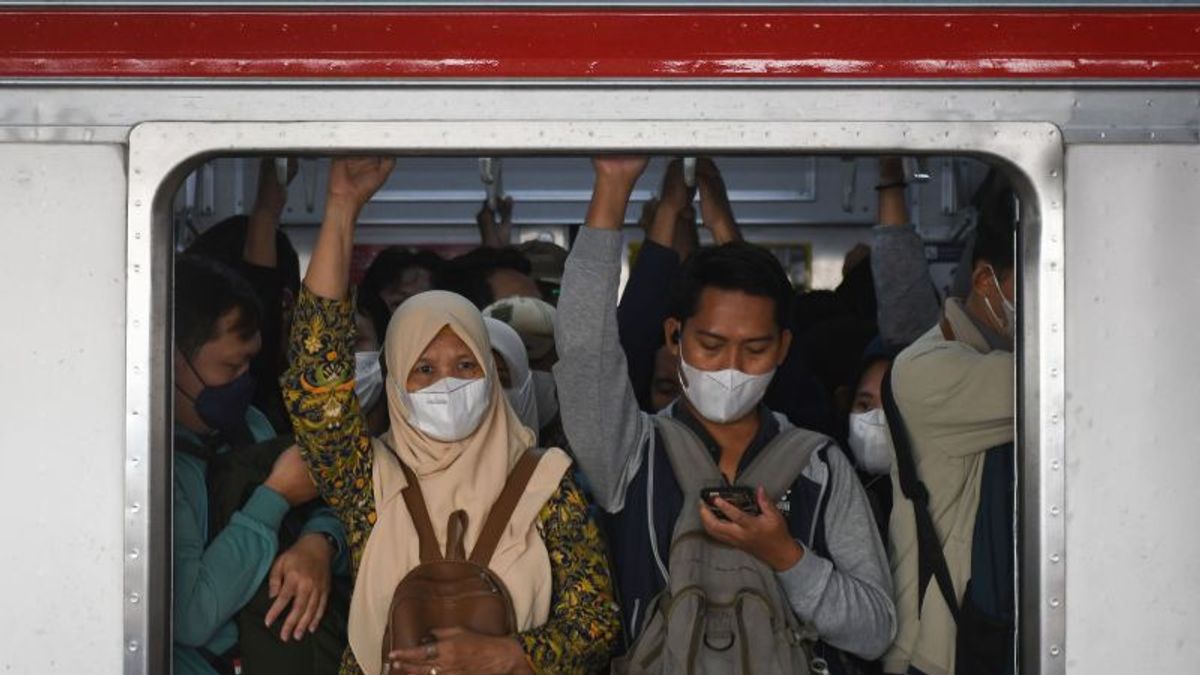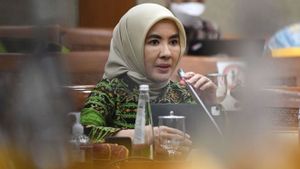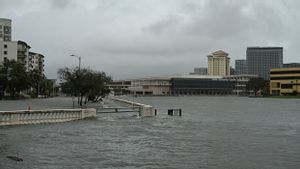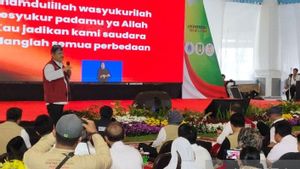JAKARTA - Chairman of the Honorary Council of the Indonesian Lung Doctors Association, Prof. Tjandra Yoga Aditama, referring to the 2021 Air Quality Life Index (AQLI) research in India, said that air pollution can have an impact on the life expectancy of people there.
"This August 29, 2023 publication is an analysis based on data for 2021, in which year the annual average PM2.5 level in New Delhi was 126.5 g/m3, which means more than 25 times the WHO recommended limit of 5 g/m3. Figures "particulate matter was also recorded as high in New Delhi in 2021," said Tjandra, quoted by ANTARA, Thursday, August 31.
Tjandra said the high levels of air pollution in 2021 had the impact of reducing the age range of New Delhi's residents to be shorter by 11.9 years, when using the safe limit according to the World Health Organization (WHO).
"Another analysis, using India's national pollution standard data, New Delhi's population can lose life expectancy for 8.5 years," he said.
The study also provides the conclusion that particulate matter pollution is the greatest risk to health in India, even surpassing the impact of cardiovascular disease and maternal malnutrition in terms of reduced life expectancy.
On average, India's population loses 5.3 years of life expectancy due to particle pollution, while the loss of life expectancy due to cardiovascular disease is 4.5 years and due to maternal and infant malnutrition is 1.8 years.
The results of the study also showed that around 67.4 percent of India's population live in an air pollution environment that exceeds the air quality standard set by the local government of 40 micrograms per cubic meter.
Not only India, the same research report also shows that in the South Asian region, pollution particles increased by 9.7 percent in the period 2013 to 2021. In India, the increase in levels of particulate matter (PM) 2.5 was 9.5 percent, in Pakistan 8.8 percent. and in Bangladesh it also rose by 12.4 percent.
Follow-up analysis of the study showed that India's average annual particulate pollution increased by 67.7 percent from 1998 to 2021. This compounded the decline in average life expectancy by 2.3 years.
Tjandra said that to this day air pollution still covers Jakarta and its surroundings and as a result there has been an increase in the incidence of acute respiratory infections (ARI) in the community, as well as the impact of lung and other respiratory diseases.
اقرأ أيضا:
Regarding the study in India, he believes it would be a good thing if the AQLI research could be carried out in Indonesia to find out for sure whether there is an impact of air pollution on life expectancy here.
"And if there is, how big is the loss of years of life. This research needs to be carried out and started now, so that in time we will get scientific data that is valid and reliable. Hopefully, the relevant parties will immediately take the right steps," said Tjandra.
The English, Chinese, Japanese, Arabic, and French versions are automatically generated by the AI. So there may still be inaccuracies in translating, please always see Indonesian as our main language. (system supported by DigitalSiber.id)


















